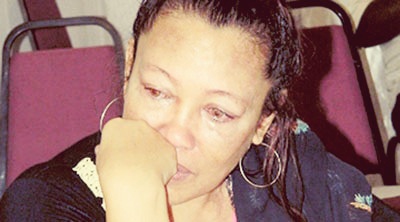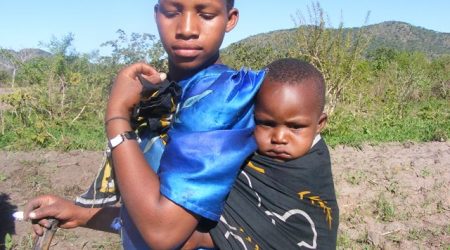The Mtwara Files
The Mtwara Files were compiled by this writer after conducting research in Mtwara Urban in 2009-2010 on the Impact of Intimate Partner Violence IPV on household incomes, for REPOA which was coordinated by Alice Nkhoma and Mary Rusimbi, both strong feminists and research coordination specialists
- Sexual Harassment and Rape
From the files perused at the District Magistrate’s Court in Mtwara between 1998 and 2008, there were already 99 per cent acquittals of defendants of cases of sexual harassment and those of rape.
In interviews the District Resident Magistrate said there are three major contributory factors to the acquittals:
- Lack of evidence from police charge sheets. This is due to the fact that women have not been given sufficient information on maintaining evidence and added “It takes a while before women report cases of sexual violence. By then, evidence, if any, is destroyed.” Moreover, only DNA tests would prove whether the semen sample is truly that of the perpetrator.
NB: In Tanzania, there is only one DNA testing machine used in the office of the Chief Government Chemist in Dar es Salaam. Even then, the DNA testing equipment is mainly used by men to determine paternity of children over whom they have doubts of having fathered. In this respect, not only is there a gross lack of evidence/proof recording equipment over forensic collection in cases of rape and of child sexual abuse in Tanzania – the national budget has not made provisions for the purchase of more DNA testing equipment, at least one for each region – there is also the issue of patriarchy where men utilize such equipment negatively in order to establish paternity. This is the opinion of the writer.
- Lack of training among police officers in interrogating victims of sexual violence – the country hasn’t given sufficient funds or notice to training law enforcers on the protocol of dealing with cases of violence against women.
- Poverty is the third factor where the perpetrator “settles” with the victim out of court by paying her a certain amount of money and the victim either withdraws the charges or does not appear during court proceedings and often, the court gives ruling ex parte, without the victim in attendance due to lack of testimony from her.
Though sexual violence is a crime, and cases brought before the court are police cases with the victim being the principal witness, without her corroboration in court, the court has no option but to acquit the defendant.
On top of that, cases of sexual violence are heard before the District Resident Magistrate’s Court in Mtwara Municipality, even cases from other districts and women often do not have funds to travel to court this is especially so for women from rural communities.
Two officers of the Mtwara District Court Registry who have worked in the Registry for over 20 years cited the culture of “saving a woman/girl’s honour” by marrying her off to her rapist.
Mzee Rajabu said it has to do with poverty – the bride price from marrying off the rape victim to her rapist, the payoff money for dropping the criminal charges is a major constraint in prosecuting and sentencing sex offenders.
There is also the question of “honour” which smacks of patriarchy that once her rapist marries her, the victim sheds the stigma of being a “fallen woman”. Of course, marrying off a victim to her rapist constitutes a crime, at least to this writer’s thinking, because he would continually be raping her during the marriage. I could not get data on how long such marriages survive, nor how many victims were “forced” to marry their rapists.
At the Mtwara Paralegal Center, a branch of the Women Legal Aid Centre (WLAC), I was told that they try to convince sex violence victims to pursue their claims in court but family and societal pressure and stigma prevents most victims to remain silent or to withdraw charges, especially if the victim is threatened with being ostracized and isolated from her peers.
The files in the Mtwara District Court Registry which this writer perused showed some defendants’ stance of saying “She’s my girlfriend and we had a quarrel.” Or “I left her for another woman; she wants revenge.” Or “She made me do it.”
The files did not give much detail about the court proceedings as often, the victim failed to appear in court to give evidence. There was, however, one court record where the prosecutor asked the victim “Were you a virgin?” – A strange statement indeed as the job of the prosecutor is to prove the defendant is guilty of the charge, and not to bring into focus the victim’s sexual habits.
- Domestic Violence
This writer perused the reports of the WLAC Paralegal Center in Mtwara and these are the findings:
- Most cases of marital dispute with eventual divorce involve domestic violence with one or more of the categories mentioned above, as a factor. The Paralegal Centre workers and volunteers said nearly 90 per cent of the women who register at the Centre for legal aid are women who have been abused emotionally or physically or verbally and over 95 per cent have experienced economic abuse by being deprived of sustenance, shelter and medical support.
- As the Chairperson of the Mtwara Center put it “They (the women) come here complaining of having been beaten “Bila sababu” without a reason, which means women have accepted that if there is a reason, then they deserve to be beaten and of getting verbal abuse.
Again, most victims refuse to lodge formal complaints to instigate criminal proceedings out of fear of societal reprisals by being ostracized by their communities.
A major factor of women abuse is economic deprivation, the Center workers said, adding “Poverty makes women stay in abusive relationships because women have few options.”
Though most ethnic groups in Mtwara are supposedly matrilineal, they are definitely not matrifocal. Women have low status especially in control of income and resources.
This writer learnt a new popular terminology in Mtwara “kusafisha ghalla” – clearing the store. In elaboration, some journalists, members of the Mtwara Press Club said “Men own the land, they own the cashew trees, and they ‘own’ their wives. They use their wives to tend the cashew trees and after harvest and crop sale, they get rid of the “old” wife and settle for a younger/newer wife.”
Income from the sale of cashew is not shared with the wife who tended the farm; instead she is thrown out and a new wife is brought in to replace the “tired tractor.” This causes poverty among women especially in a society where a “tired tractor” is treated with scorn and other men would be loath to take such a woman for a wife. Considering land ownership is in the greedy and abusive hands of men, the belief that Mtwara is a matrilineal; woman respecting society is a gross misinterpretation of reality.
Members of the Mtwara Press Club discussed the issue of economic violence/deprivation which to a large extent has contributed to women – they did not have proper data – to suffering from clinical depression and sometimes mental illness.
“In fact the issue here is not only physical violence”, they said, “It is economic violence which is more widespread.”
In an interview with three workers of Basic Needs – Tanzania, a civil society organization which deals with support to victims of mental health and support to heal and rehabilitate them, this writer learnt that nearly 60 per cent of the mental patients under the care of Basic Needs – Tanzania are women.
The workers at Basic Needs – Tanzania cited emotional stress, clinical depression and schizophrenia as being among the most common mental diseases. They said the high rate of divorce caused by domestic violence (including) the five categories mentioned above is a contributory factor to mental illness among women. Again, this researcher heard the saying “kusafisha ghalla”, which in effect means men use women/their wives to clear the cashew tree farms, weed, etc. and after the seasonal sale of the crop, they get rid of them.
.Basic Needs – Tanzania cited alcohol as another factor which contributes to violence against women. Consumption of alcohol is also seasonal. When they have sold the cash crop and have cash, men consume more alcohol, using up family resources and when women complain of being deprived of sustenance, they get beaten and thrown out and in the process, they lose income, shelter and status in their communities. It seems having a husband, even an abusive one, bestows status on a woman.
The Basic Needs – Tanzania workers cited polygamy as form of violence against women, saying nearly 55 per cent of their women patients suffer from clinical and social depression caused by polygamy. The sad fact, said the outreach coordinator, is society hasn’t been sensitised sufficiently to perceive depression as a mental illness.
Polygamy also reduces the family’s resources as the new wife/wives would have children increasing the number of dependants in a household.
The stigma and discrimination associated with mental illness is deeply entrenched among ethnic groups of Mtwara and terms like “wee kichaa” – “you are mad” – among mentally challenged people are discouraged by Basic Needs – Tanzania, saying violence in language increases stigma and discrimination.
A survey of various households in Mtwara Mikindani by Basic Needs- Tanzania got the findings of children as young as ten years of age taking care of a mentally ill parent, ostensibly a mother, after being abandoned by the husband.
Basic Needs – Tanzania pointed out Tanzanian society is not overly concerned about care to mentally challenged patients. In fact, the national budget does not take into consideration the needs of people suffering from mental health.
A Social Welfare Officer of the Mtwara Municipality says “Society tends to define violence against women within the parameters of physical abuse, occasionally within the confines of mental torture. Economic abuse and deprivation of basic needs, poverty among women has never been addressed as a form of violence.”http://leilascafe.org/wp-admin/post-new.php
A woman guard at Mtwara Harbours Authority said there is sexual harassment taking place at places of work and women often succumb because of poverty. However, in the process, they suffer emotionally and their productivity is greatly reduced, often leading to illness like migraine, fatigue. Sometimes even after succumbing, they lose their jobs either because the boss has lost interest in them and are after other prey, or because they lack focus at work and as a result, get sacked. A Mtwara Development Officer said women who are experiencing domestic violence have a higher rate of absenteeism from work because of injury or depression. Such women often lose their jobs. After all, how many ‘Excuse Duty’ certificates can you produce in a week and get believed by your boss?
A Mtwara Development Officer said women who are experiencing domestic violence have a higher rate of absenteeism from work because of injury or depression. Such women often lose their jobs. After all, how many ‘Excuse Duty’ certificates can you produce in a week and get believed by your boss?
At the Mtwara Municipal Hospital, there were two women patients admitted in the ward. One had her jaw and arm broken and the other had had kerosene stove thrown at her and her clothes and body caught fire.
The Medical Officer in Charge in Mtwara Hospital cited examples of rape of mentally ill women. Various cases of pregnancy among women suffering from mental health have been reported at the Mtwara General Hospital. As one doctor at the hospital said, “According to the Sexual Offences Special Provisions Act (SOSPA 1998) it is a criminal offence to have sexual intercourse with a mentally handicapped woman yet we get such cases.”
Another example is child sexual abuse by people they know like stepfathers, uncles, teachers, neighbours, and family friends, people who are entrusted with the care and protection of children.
A nurse said most cases of violence against women go unreported. “They don’t seek medical help unless there is serious injury”.
She said, they have learnt to recognize the symptoms not only from the extent of physical injury like a broken jaw, facial swelling, eye injury, broken limbs, etc., but also from the mental and emotional stress the victims demonstrate while being examined. “We insist they get a PF3 and sometimes they don’t come back when we ask them to get the PF3.”
In a random survey in Mtwara Manispaa and Mikindani, among 12 women respondents, most denied having experienced battery, though some said they get verbally abused.
I do not know whether it is the culture of silence over violence against women, or whether they were telling the truth.
The Regional Police Commander and the District Crime Officer in Mtwara said the rate of violence against women in Mtwara is high but most cases go unreported because women fear stigma and isolation from members of their community.
Poverty is closely linked to VAW because abused, abandoned wives invariably become poor and without shelter. Some respondents said “Men control the farms and the crops. We had no option but to form a group because some of us are abandoned/divorced women and were thrown out of our marital homes.”
Sheikh Mpwago of BAKWATA, Mtwara and Sister Illuminata of the KKKT who runs a parish counselling programme said they get between 7-9 cases of domestic violence per month. The Seventh Day Adventists Pastor said sometimes, especially during the harvesting season, when men have money to buy alcohol and get new wives, they get up to 12 cases per month. The religious leaders conceded that most cases go unreported.
“Intimate Partner Violence is so endemic in Mtwara that when a woman marries, she leaves some of her personal belongings in her parents’ house because she knows the marriage wouldn’t last”, say Social Workers.
The Mtwara Paralegal Center said regional and district and local government leaders ought to initiate conversations on being cooperative in sensitising the public on violence against women.
For example, in the 2008 16 days of activism against Gender Based Violence, government leaders and members of parliament did not attend the function though they were given ample notice to arrange their schedules.
They said it is discouraging because cooperation is needed to scale up the Response towards the elimination of harmful practices and those government leaders and members of parliament are key people in mobilizing the public, ”having legislation is not enough. There is need for sensitisation through community outreach. There is also need to train law enforcers and the judiciary on the protocol to deal with Gender Based Violence cases”.
“Together We Can Make it Happen”
Leila Sheikh














Leave a Reply